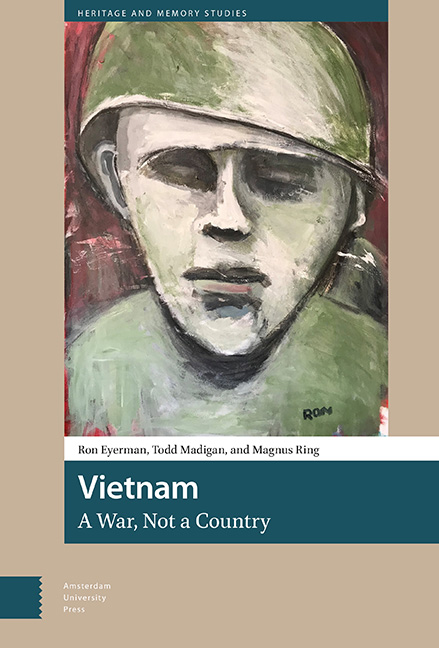Book contents
- Frontmatter
- Table of Contents
- Preface
- 1 Introduction: Cultural Trauma and the American-Vietnamese War
- 2 Cultural Trauma and Vietnamese Arenas of Memory
- 3 The Trauma of Vietnam: The American Perspective
- 4 Journey From the Fall
- 5 Cultural Trauma and Vietnamese-American Arenas of Memory
- 6 Conclusion: War, Trauma, and Beyond
- Index
1 - Introduction: Cultural Trauma and the American-Vietnamese War
Published online by Cambridge University Press: 29 November 2023
- Frontmatter
- Table of Contents
- Preface
- 1 Introduction: Cultural Trauma and the American-Vietnamese War
- 2 Cultural Trauma and Vietnamese Arenas of Memory
- 3 The Trauma of Vietnam: The American Perspective
- 4 Journey From the Fall
- 5 Cultural Trauma and Vietnamese-American Arenas of Memory
- 6 Conclusion: War, Trauma, and Beyond
- Index
Summary
Abstract
There is continuing conflict over how the American-Vietnamese War ought to be understood, represented, memorialized, and learned from, and this struggle over its memory has been waged within the communities of all those who were touched by its hostilities. And precisely how the war is remembered is of ongoing concern, for when a collectivity understands itself to have been fractured by some calamity, then if it is to persist as a collectivity, it must reconstitute its identity. This process of collective identity reconstruction is indicative of cultural trauma, the traumatization of an entire society. The present chapter develops the conceptual tools necessary to trace this process within the societies of each of the war’s primary belligerents.
Keywords: Vietnam War, cultural trauma, collective memory, cultural sociology, Vietnamese American, narrative identity
One day, Vietnam may become a country; for now, it remains a war….
The Nation, 1990At the close of the twentieth century, Vietnamese-American novelist Monique T.D. Truong claimed that “For the majority of Americans, Vietnam as a self-defined country never existed,” that its existence in the U.S. national consciousness emerged only when it became “defined by military conflict”—as the site of American warfare (1997: 220). Through the opening decades of the twenty-first century, little has changed to challenge this assertion. Twenty years after Truong made this statement, another Vietnamese-American writer, Pulitzer-Prize winner Viet Thanh Nguyen, wrote an op-ed for The New York Times where he asserted, “For most Americans and the world, ‘Vietnam’ means the ‘Vietnam War,’ and the Vietnam War means the American war” (NYT, 5/2/2017). This fact is also highlighted by the editors of a 2016 book on the war when they claim that “‘Vietnam’ is used as shorthand in the United States for the war, not the country” (Boyle and Lim, 2016: xv). And as if to illustrate this point, Karl Marlantes, the author of Matterhorn and a veteran of the American-Vietnamese War, titled an article in such a way as to make this equivalence of Vietnam-as-war explicit: “Vietnam: The War That Killed Trust” (NYT, 1/8/2017).
- Type
- Chapter
- Information
- Vietnam, A War, Not a Country , pp. 9 - 40Publisher: Amsterdam University PressPrint publication year: 2023



